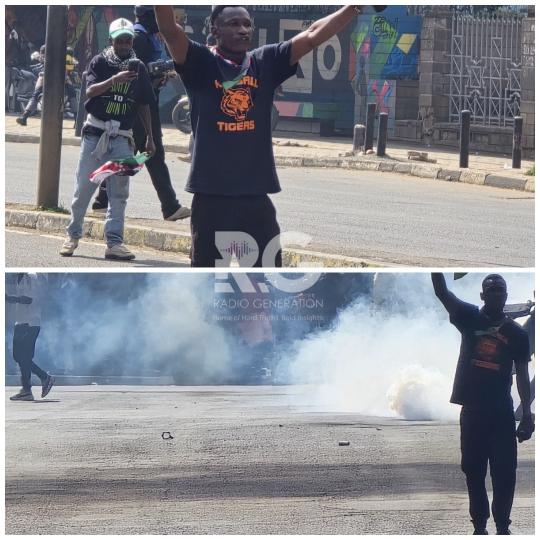Rights groups sound alarm over declining democratic freedoms in Kenya

Eric Mukoya and Innovation Foundation for Democracy director Achille Mbembe raised concern over what they described as a widespread collapse in public faith in democratic governance.
Kenya is rapidly losing its democratic character as government responses to dissent grow increasingly forceful and intolerant, rights groups have warned, pointing to violent protest crackdowns, restrictions on free expression, and the weakening of key institutions.
Speaking during a democracy forum in Nairobi, International Commission of Jurists executive director Eric Mukoya and Innovation Foundation for Democracy director Achille Mbembe raised concern over what they described as a widespread collapse in public faith in democratic governance.
They said the aggressive manner in which protests are handled, the targeting of independent voices online, and the silencing of critical media have led many Kenyans to lose trust in democratic systems.
“The lights are flashing red,” they warned, citing a pattern of ignored court rulings, illegal surveillance, shutdown of media outlets, misuse of public funds, and the use of masked officers in unmarked vehicles during protests.
Mukoya said this growing distrust is being driven by institutions that are meant to uphold democracy but have instead become tools of repression.
“Democracy in the country is losing meaning and the ordinary citizens are slowly giving up. We are here today to begin a conversation on what democracy means to ordinary citizens, particularly because we have had processes, we’ve had elections, that have no meaning at all to people,” he said.
He criticised a governance system where elected leaders end up making decisions behind closed doors, far removed from the people they are meant to serve. “We elect and people go to boardrooms and make decisions.
We are asking whether it is still viable to have systems, institutions, laws and policies that are supposed to serve people and ensure their rights are protected — but what we experience is a clawback on that.”
According to Mukoya, the situation in Kenya is not isolated but reflects a regional crisis. Citing the 2023 Afrobarometer report, he noted that over half of African citizens 55 percent, no longer believe in democracy.
“When you look at Uganda, Tanzania, Kenya and the South African region, the clawback is real,” he said.
“I’d like to remind us that the Afrobarometer report of 2023 indicated that 55 per cent of Africans don’t believe in democracy anymore. You can tell when you see the stories of [Ibrahim] Traoré they may be shaped by media, but the truth is, people have lost faith in democracy. We would like to reignite that democracy here.”
Mbembe echoed the concerns and urged for collective action across borders to reclaim civic space and rebuild trust in governance. “It’s time for African civil society to come together and devise ways and means to re-enchant the democratic project in our continent,” he said.
He called on activists to hold governments accountable to international commitments, including the African Union Constitutive Act and the UN Charter, and urged the continent’s youth to remain engaged in pushing for change.
“We face a crisis in the continent which is intergenerational, our societies are mostly governed by old people, men in particular a gerontocracy. Equality between men and women is not yet fully achieved, and old men do not know how to step aside and pave the way for younger generations. All of this hampers the regeneration of our societies,” Mbembe said.
The two-day forum brought together voices from across the region to confront the declining state of democracy and to explore strategies for reversing the trend.
